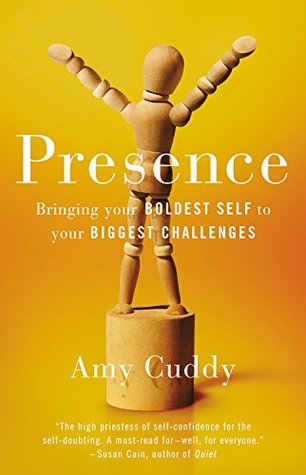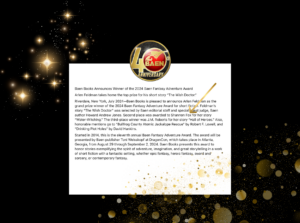By Amy Cuddy
Have you ever left a nerve-racking challenge and immediately wished for a do-over? Maybe after a job interview, a performance, or a difficult conversation? The very moments that require us to be genuine and commanding can instead cause us to feel phony and powerless. Too often we approach our lives’ biggest hurdles with dread, execute them with anxiety, and leave them with regret.
By accessing our personal power, we can achieve “presence,” the state in which we stop worrying about the impression we’re making on others and instead adjust the impression we’ve been making on ourselves. As Harvard professor Amy Cuddy’s revolutionary book reveals, we don’t need to embark on a grand spiritual quest or complete an inner transformation to harness the power of presence. Instead, we need to nudge ourselves, moment by moment, by tweaking our body language, behavior, and mind-set in our day-to-day lives.
Amy Cuddy has galvanized tens of millions of viewers around the world with her TED talk about “power poses.” Now she presents the enthralling science underlying these and many other fascinating body-mind effects and teaches us how to use simple techniques to liberate ourselves from fear in high-pressure moments, perform at our best, and connect with and empower others to do the same.
Brilliantly researched, impassioned, and accessible, Presence is filled with stories of individuals who learned how to flourish during the stressful moments that once terrified them. Every reader will learn how to approach their biggest challenges with confidence instead of dread, and to leave them with satisfaction instead of regret.

I knew this was going to be a great book when I stumbled across this quote on page 19:
“Treat even the most difficult interactions as opportunities for [you] to reveal what [you’re] capable of and to express [your] worthiness.”
This book was all about how to attack life more confidently. There’s a lot of good advice packed in these pages.
Presence is defined as “the state of being attuned to and able to comfortably express our true thoughts, feelings, values, and potential.” A pretty simple concept, but one that most of us struggle with.
The core of presence, Cuddy says, is really knowing who we are. When you know who you are, you speak from a place of truth that is hard to argue with. When you know who you are, when you believe in your own story, that’s where presence starts. Self-affirmation helps because it allows you to “clarify your story and allows you to trust that who you are will come through naturally in what you say and do.”
Cuddy delves extensively into body language and how assuming “power poses” can trick your mind into assuming a state of presence. This section was a bit repetitive, but the diagram of different power poses was worth getting to. It’s really interesting to check out the power poses and then observe people around you and what their body language says.
One of the other interesting sections of this book, which has less to do with achieving presence and more to do with the roadblocks to presence, were the two sections about self-doubt, powerlessness, and imposter syndrome. The section on imposter syndrome should be required reading for everyone. Imposter syndrome is defined as “the deep and sometimes paralyzing belief that we have been given something we didn’t earn and don’t deserve and that at some point we’ll be exposed.”
I bet everyone has had those moments where they feel like an imposter. Whether it’s an award, a career highlight, college admission, or something else, it seems that we all feel like a fraud from time to time. While it seems we can’t ever be entirely rid of these fears, presence and the affirmation of our true selves help ease these anxieties and help us shrug away our fear and feelings of powerlessness.



